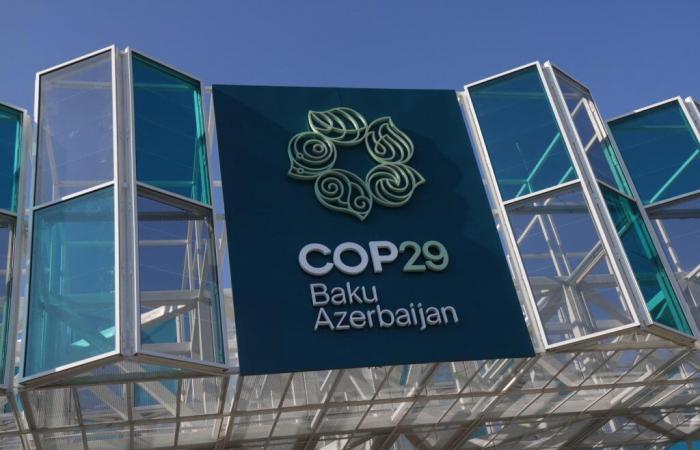At the end of October, floods ravaged part of Baku. This episode, which could be linked to global warming, left two people dead. It is also possible to read it as a warning addressed to the country which this year has the task of coordinating climate efforts: it is in the Azerbaijani capital that the 29th climate conference opens this Monday, November 11 of the United Nations (COP).
Since the bad weather, the Azerbaijani president visited the Baku Olympic stadium to inspect the finished work and to reassure. On the website of the official press agency, we see Ilham Aliyev, in power since his father, Heydar, left it to him in 2003, walking the aisles where the international delegations will sit. The ups and downs of the weather can go elsewhere, the indignity of bad weather has been washed away and everything seems ready. But ready for what exactly?
Twenty-eight years of COP and the wait has rarely been so low on the eve of this annual meeting. This lack of enthusiasm is certainly the conjunction of several factors, including the uncertainty posed by the American elections, but is also due to the very nature of the host country: Azerbaijan, an oil and gas center, of which 35% of the GDP and half the budget is based on extraction.
A COP president from the oil company
Baku does not hide it. The person who will chair the conference, Mukhtar Babaev, is a former manager of Socar, the national oil and gas company and the country's largest employer. This Azerbaijani giant is also one of the sponsors of the event, via its Socar Green division, created in 2024 to green its reputation in the run-up to COP29. “Of the 28 previous COPs, only one, in Switzerland, was not organized in a producing country,” argues Hikmet Hajiyev, President Aliyev’s foreign affairs advisor. A fair argument but which fails to differentiate host countries with high production, such as the United Arab Emirates in 2023, from those low producers but large importers of hydrocarbons, France (COP21 in 2015).
According to the diplomat, among the most influential personalities of the regime, “the success or failure of this edition depends on all parties, not the host country”. Since this summer, participants in the preparatory meetings have criticized the Azerbaijani team's lack of experience in climate negotiations. “We are not saying that this will be the best COP in history, it is not a beauty contest, replies Hikmet Hajiyev. Our approach is humble and multi-layered: it is a COP dedicated to financing, so we work for example to include the private sector and banks. »
The financing issue at the heart of COP29
Whether ambitious or not, the success of the Azerbaijani presidency depends, in fact, on the inclination of developed countries to commit to a new global climate financing objective for the period 2025-2030, the main issue of this COP29 . The previous objective set to provide 100 billion dollars per year between 2020 and 2025, to fight against climate change and adapt our societies to rising temperatures, is in fact coming to an end.According to our information, the Baku team did not suggest a precise envelope on this point, leaving free rein to negotiations between countries. “You, the Westerners, criticize us but we cannot decide for the Europeans”justifies a ministerial source.
Baku highlights its own commitments, although they remain limited as they stand: reducing CO2 emissions by 40% by 2050 and increasing renewable capacities by 30% by 2030. “Since 2015, in nine years, oil production volumes have decreased by 30% from 41 to 29 million tonnes per year, explains specialist Ilham Shaban, from the Caspian Barrel Oil Research Center, in Baku. In all likelihood, by 2050 Azerbaijan will become the first oil country in the world to stop commercial production. »
But at the same time, Azerbaijan wants to increase natural gas production by 14% by 2035, as the NGO Oil Change International points out. The local media do not dwell on these contradictions. On the contrary, state agencies appear to have prepared counter-fires and are publishing articles presented as “investigations” against the “anti-Azerbaijani propaganda” foreign media. “In the coming days, the Azerbaijani reader should expect headlines about “collusion of COP29 and the oil and gas lobby”already warned one of them.






